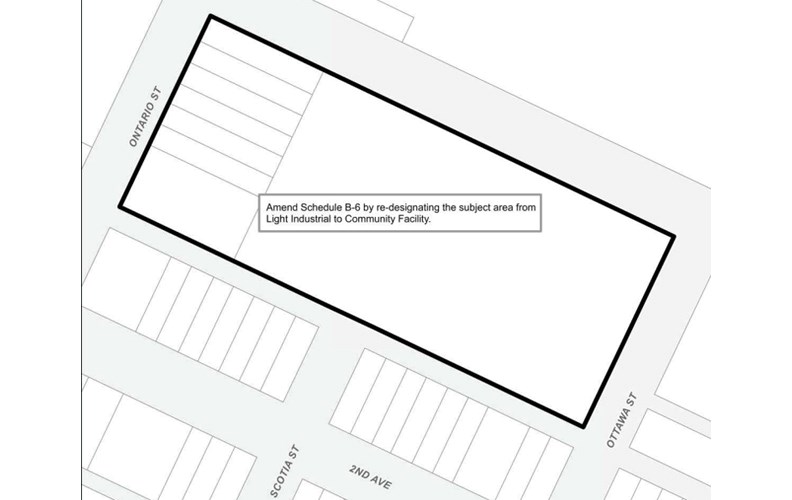Work could begin later this year on a pair of proposed social housing projects at the corner of First Avenue and Ontario Street, city council heard on Monday.
Council gave final reading to a pair of rezoning bylaws that will pave the way for projects, which will include 50 units of supportive housing and 50 units of rental homes for low-income people. The move finalized the unanimous support council showed for the project during the public hearing for the project on Feb. 24.
"We're working with the province, we're expecting some construction to occur on this site later this year," city general manager of planning and development Ian Wells said.
The combination of the COVID-19 pandemic and opioid overdose crisis in the province has emphasized the need for projects like these, Wells said.
"It's a pressure point to move this forward," he said. "So we see some construction of a foundation happening probably this year."
The project is slated to be developed on the 1.7-hectare (4.3-acre) site currently occupied by NR Motors.
Each of the housing buildings will include ground-floors healthcare services, including a needle exchange and safe injection site, community outreach, mental health services and primary care for residents and the public.
"It's a big initiative, (and) I think it's long overdue," Coun. Brian Skakun said.
The project is a partnership between the City of Prince George, BC Housing and Northern Health. The city will purchase the land, BC Housing will build the facility and Northern Health will provide the health services.
Mayor Lyn Hall said the city has been working with the other partners for two-and-a-half years to make it happen.
"This has been a tremendous amount of work for everybody," Hall said. "As a matter of fact, our last meeting was just a few days ago to get this over the finish line."
This project is an important piece of the puzzle in terms of revitalizing downtown, Hall said, one that matches the importance of the major commercial and private residential developments happening downtown.
"This is one of the key components for downtown integrated health services to help us help folks who are on the street with mental illness, drug addiction – it's a big deal."


